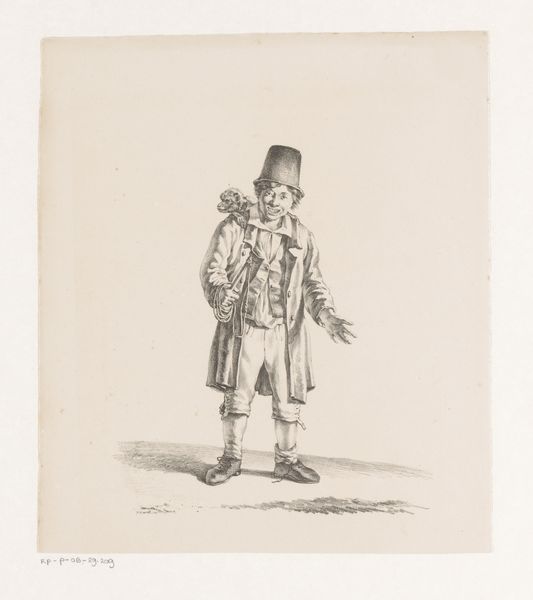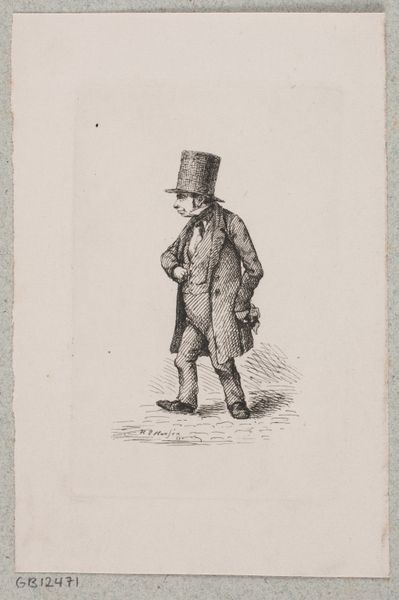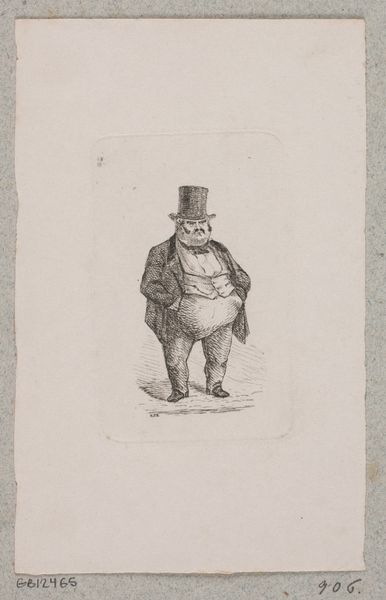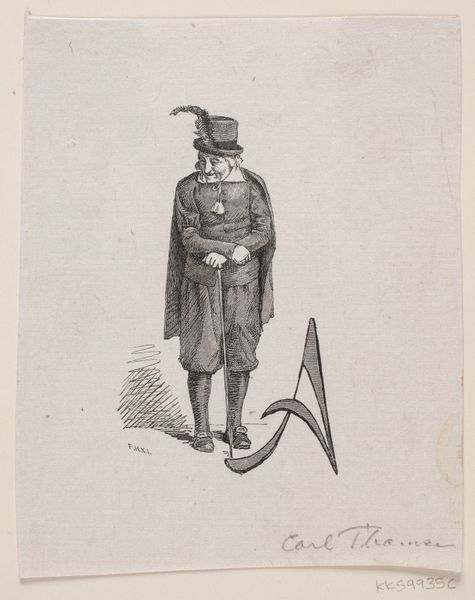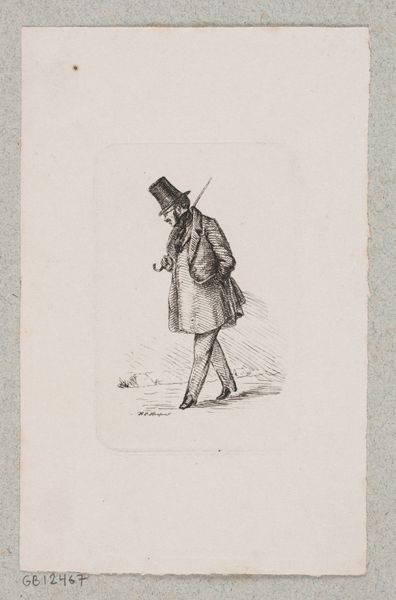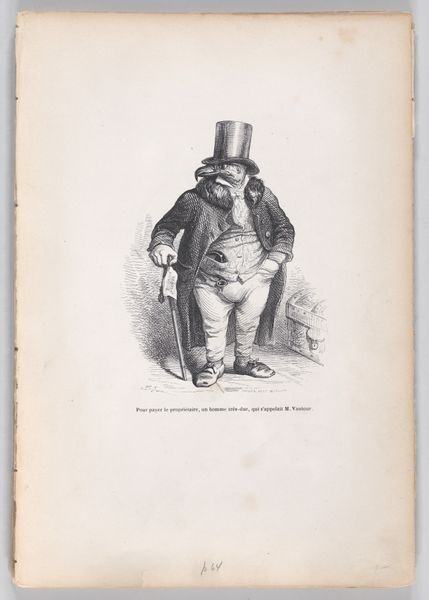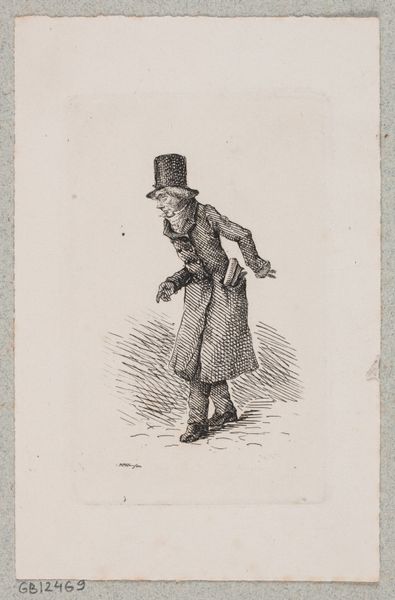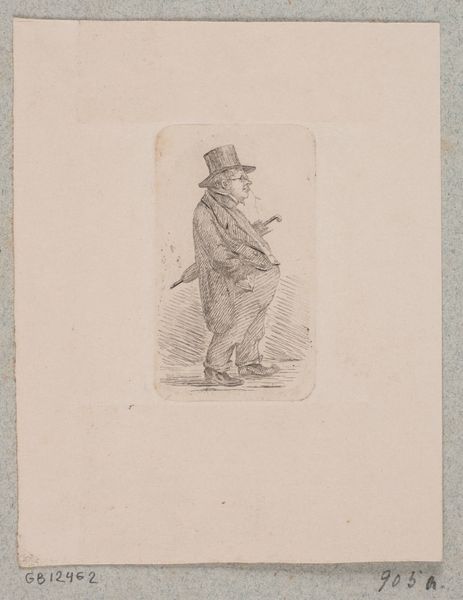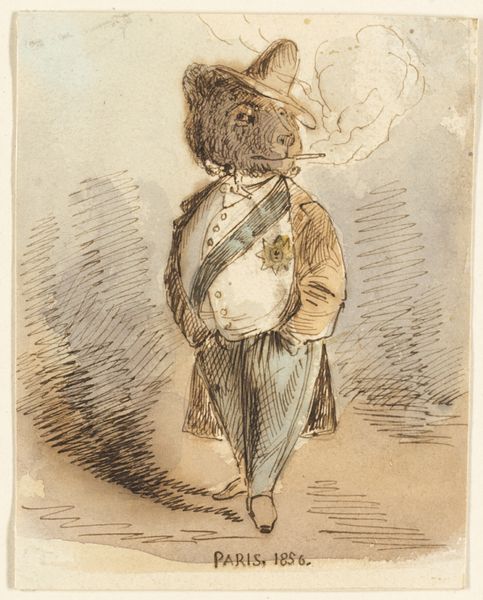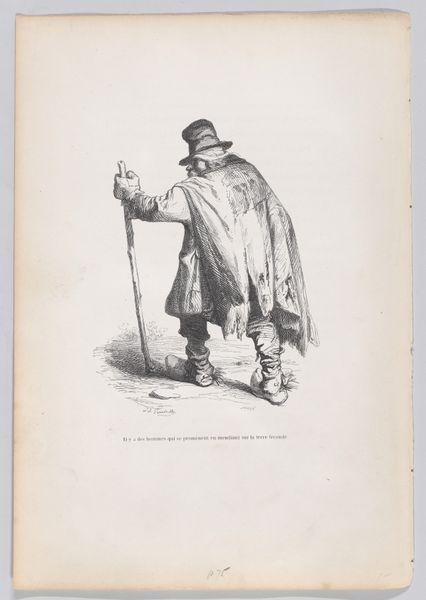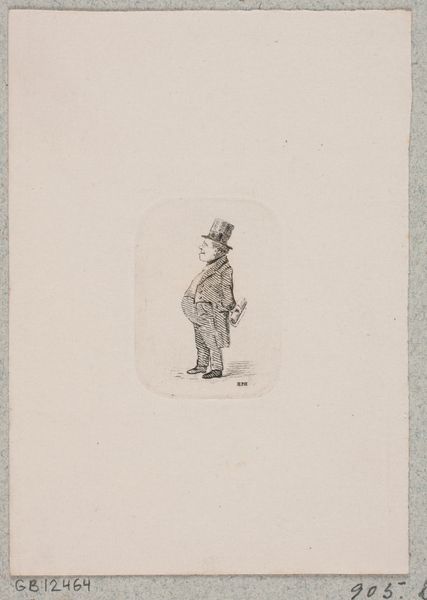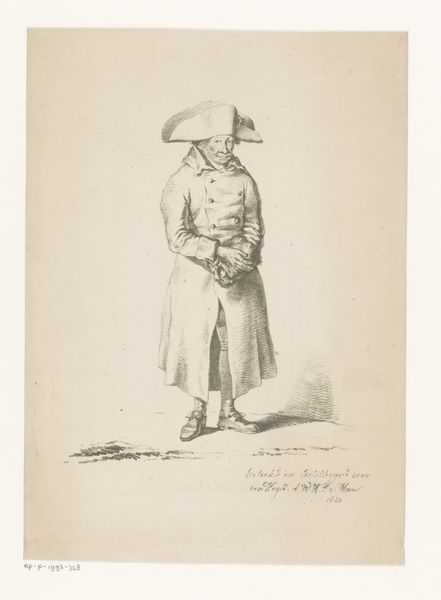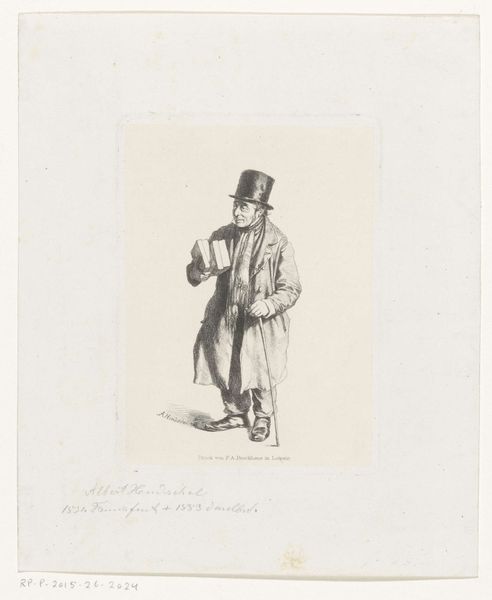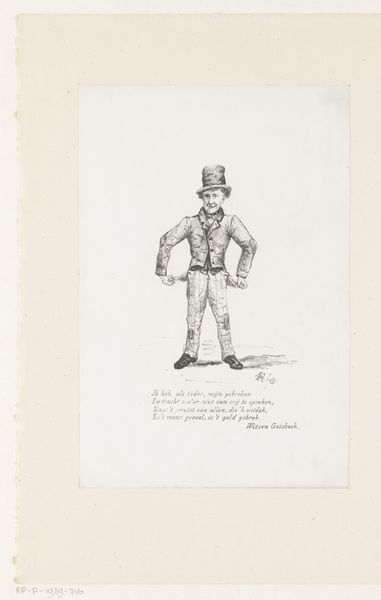
drawing, print, ink, pen
#
pencil drawn
#
drawing
# print
#
caricature
#
pencil sketch
#
figuration
#
ink
#
pencil drawing
#
romanticism
#
pen
#
pencil work
#
watercolour illustration
Dimensions: Sheet: 5 5/8 in. × 5 in. (14.3 × 12.7 cm)
Copyright: Public Domain
Curator: What a strange and beguiling little figure. I find its caricature unsettling. Editor:Indeed! Here we have J.J. Grandville's "Mister Vulture," created around 1840. It’s currently held here at the Metropolitan Museum of Art. This is a pen, pencil, and ink drawing—likely intended for print reproduction given its precise linework. Curator: The lines are exquisitely controlled! Observe the contrasting textures achieved solely through hatching and stippling. Consider the geometry too. The circular vignette isolates and intensifies the figure, trapping its unsettling gaze. Editor: Absolutely. It is interesting to view Grandville's art through the lens of social critique and caricature, popular themes throughout the Romantic period. There are echoes of Daumier here. Curator: Yes, but Daumier possesses a bluntness absent in Grandville’s almost unsettling subtlety. Note how the feathered textures suggest decay despite the elegance of his attire. Editor: That's precisely what makes Grandville so effective, don't you think? He disguises a scathing indictment within an accessible visual language. We see elements of anthropomorphism, perhaps aiming at figures within French society during the time. He often satirized political figures. Curator: Semiotically, the Vulture reads as predatory, parasitic. He literally consumes—through visual metaphor—the hard earned resources of others. A potent condemnation, if I do say so. And consider how the inscription beneath anchors the image to a very specific time and location. Editor: The vulture becomes not just an individual, but a representative of a systemic ill, magnified through widespread circulation via print. And it clearly positions this "vulture" as a property owner—a man profiting off the backs of others. It speaks volumes about the changing role of the elite in 19th-century French society. Curator: What is striking here is the density, the visual sophistication embedded in what may appear to be simply, "a caricature." I see complexity and purpose. Editor: Grandville's "Mister Vulture," offers us insight into French society of that era and serves as a powerful statement on the socio-political context of the 19th century. Curator: Indeed. An analysis of line and form uncovers the artist’s complex visual system—he masterfully combines representation and commentary within its borders.
Comments
No comments
Be the first to comment and join the conversation on the ultimate creative platform.
